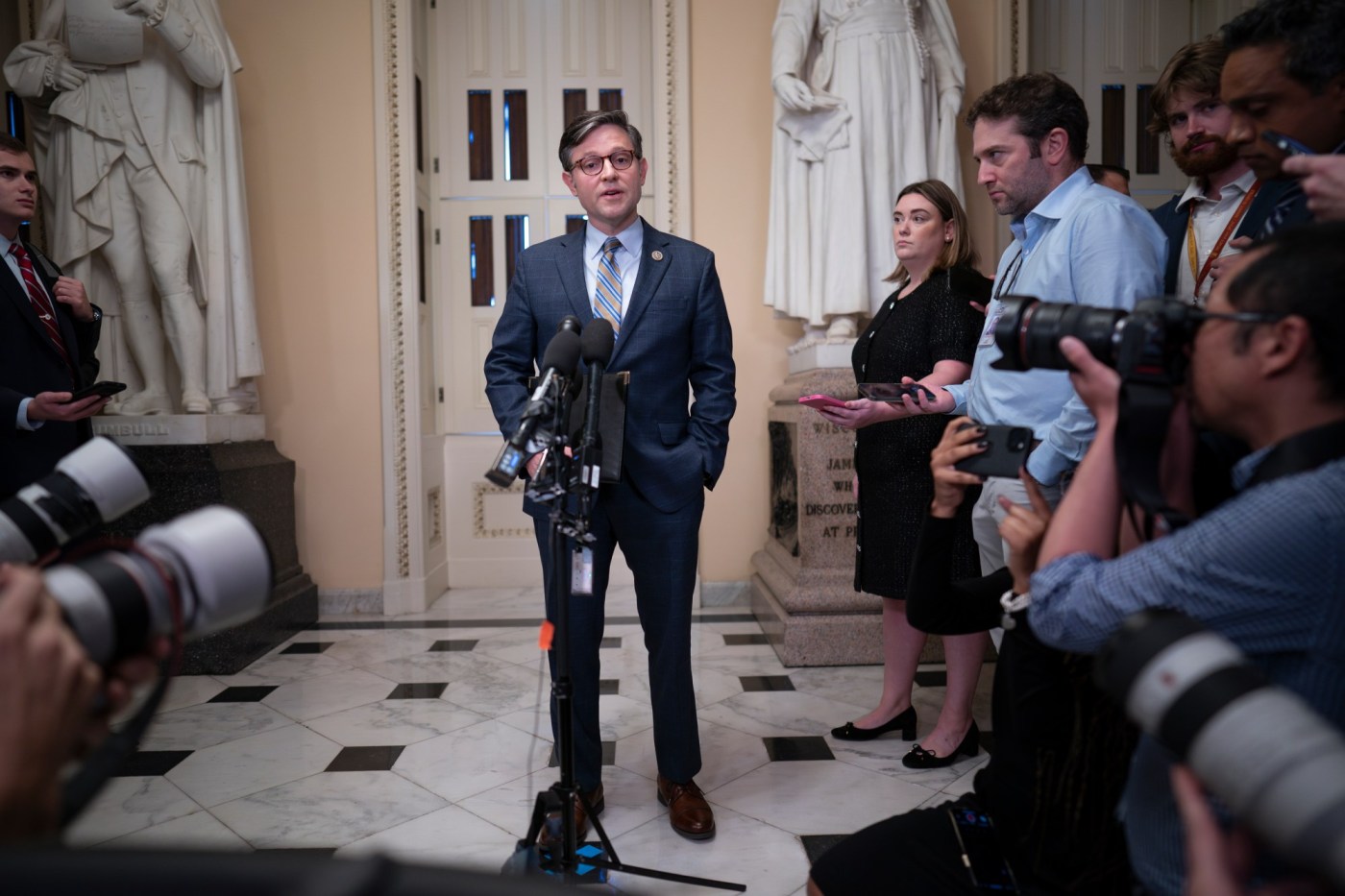
Schoen: Congress avoided shutdown, lacks a plan
With just a few days to spare, Congress managed to pass another stopgap spending bill, avoiding a government shutdown, but once again displaying the lack of a long-term plan to address the nation’s worsening financial situation.
Moreover, the struggle to get the continuing resolution through the House of Representatives exposed deep divisions within both parties generally, and the GOP specifically, which make their control of the House tenuous at best as next year’s elections approach.
The recent vote in the House saw more Democrats support new Speaker Mike Johnson’s continuing resolution than Republicans – 209 Democrats and just 127 Republicans voted ‘yes’ – while 93 Republicans opposed it, more than voted against a continuing resolution in September which cost former Speaker Kevin McCarthy his job.
And while it is unlikely that Johnson will meet a similar fate as his predecessor, his dependence on Democrats has already angered the right-wing of his caucus, especially the House Freedom Caucus, which released a statement blasting Johnson’s stopgap plan, saying it “contains no spending reductions, no border security, and not a single meaningful win for the American people.”
To be sure, while overcoming the objections to continuing resolutions and avoiding a government shutdown is objectively a win for the new Speaker, who has been in the role for just a few weeks, Johnson’s victory will likely be fleeting.
Unable to agree on a long-term fiscal package, Republicans were once again forced to resort to a short-term spending bill, the first tier of which expires in January, meaning that absent a long-term plan, Republicans will find themselves in this exact same situation in just two months.
Additionally, tensions within the GOP are continuing to boil over at a time when the party is more divided than at any point in recent history, as the split between moderate Republicans and the extreme-right deepens.
Indeed, the House Freedom Caucus wasted little time before seeking retribution against Johnson. They blocked an appropriations bill, eventually forcing the speaker to cancel the vote and send members home for a Thanksgiving break. After the vote was canceled, Rep. Scott Perry – Chair of the Freedom Caucus – said of Johnson’s appropriations proposals, “We’ve had enough. We’re sending a shot across the bow.”
Of course, any spending bill which the Freedom Caucus would find acceptable would be DOA in the Democrat-controlled Senate, to say nothing of President Biden’s veto, but that is of little concern to the most right-wing Representatives which have shown themselves to be more interested in grandstanding than in actually governing.
It also matters little to the Freedom Caucus that they are attacking one of their own: Johnson was not only a key player in former President Donald Trump’s efforts to overturn the 2020 election, but Johnson has also formally endorsed Trump in the 2024 race, deepening the influence of Donald Trump on the House GOP.
Apparently, Republicans have yet to realize – or do not care – that tying themselves to Trump has consistently been an incredible political vulnerability, which has proved costly in elections in 2018, 2020, and especially 2022, when historic inflation led many to predict a ‘Red-Wave’ election which turned out to be nothing of the sort, as Republicans lost multiple winnable races due to extreme, low-quality candidates backed by Trump.
For their part, Democrats are all but guaranteed to take advantage by connecting every Republican Congressional candidate to Donald Trump, resorting to the same playbook that has worked well for Democrats in the three most recent elections.
Put another way, dysfunction within the GOP, particularly between moderates and the hardliners, which one House member described as “schoolyard bully (expletive)” will only turn into campaign fodder for Democrats, who should have very little trouble painting the entire GOP as subservient to Donald Trump, consumed by chaos, and unable to lead.
That being said, Democrats would be mistaken if they think they can overlook the divisions within their own party and their own lack of a long-term agenda to address the nation’s problems.
More than 20 Congressional Democrats sided with Republicans to censure one of their own – Rep. Rashida Tlaib – for her alarmingly antisemitic comments in the wake of the war between Israel and Hamas, highlighting the chasm between moderates and progressives.
Further, Democrats’ economic messaging has fallen flat, as ‘Bidenomics’ remains deeply unpopular. Despite Democrats’ best efforts to promote the strength of the economy, one-half (50%) of registered voters – including 54% of Independents – say the economy is getting worse per Economist/YouGov polling, while Biden’s approval on the economy sits at a dismal 38%.
In that same vein, Congressional Democrats have given no indication that they have a workable long-term fiscal plan if they find themselves controlling the House next year. Were that to happen, Democrats would likely find themselves facing similar divisions as Republicans, with moderates and progressives likely to clash over military aid to support both Israel and Ukraine.
Ultimately, at a time of immense geopolitical uncertainty, when the world is looking to the U.S. for steady leadership, both parties unfortunately prefer political expediency over forward-looking solutions to the real problems facing the country.
And, while we managed to avoid a government shutdown and the resulting economic damage, Congress has taken a step backwards, choosing to kick the can down the road over coming up with bipartisan, long-term solutions to the country’s deteriorating financial position.
Douglas Schoen is a longtime Democratic political consultant.


